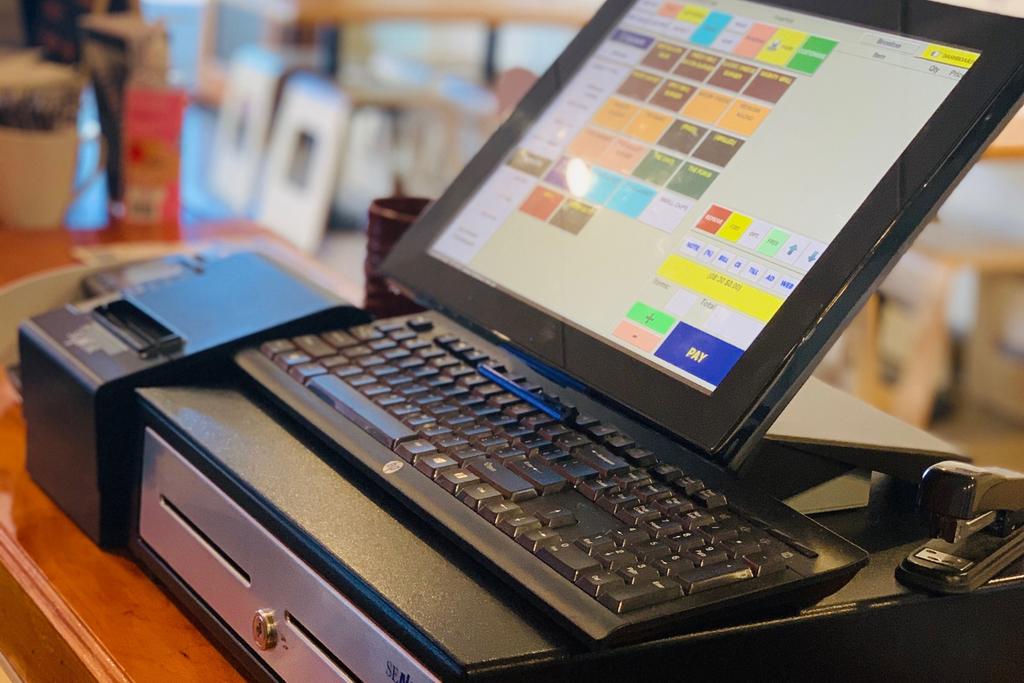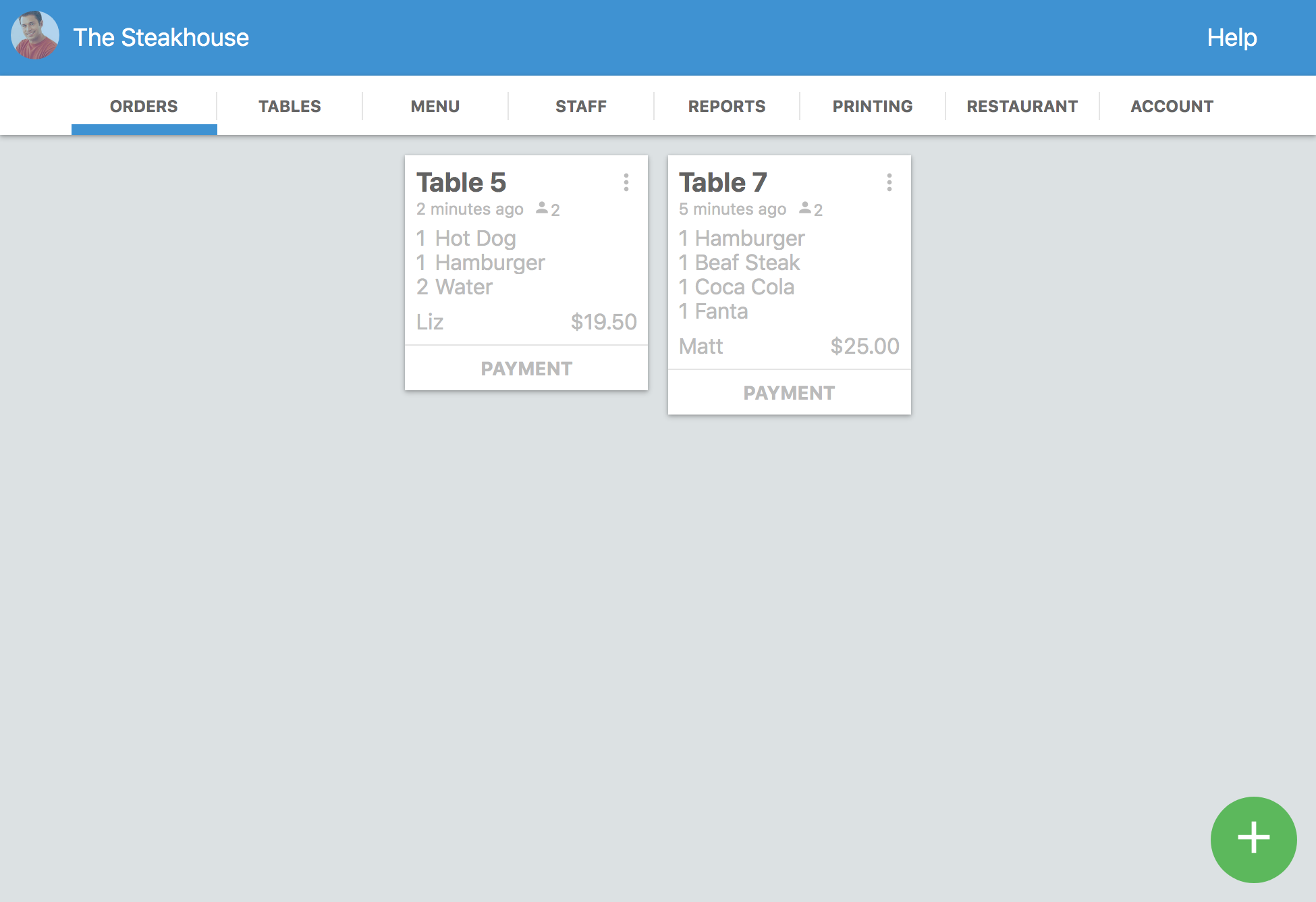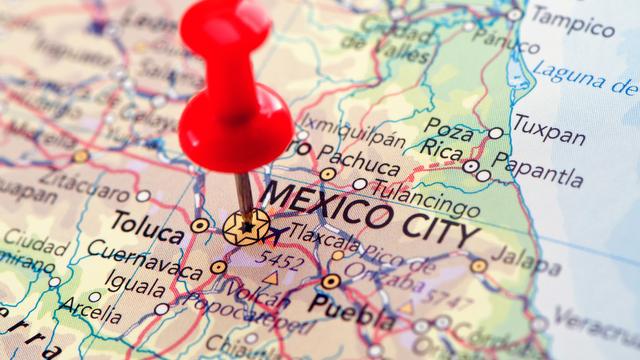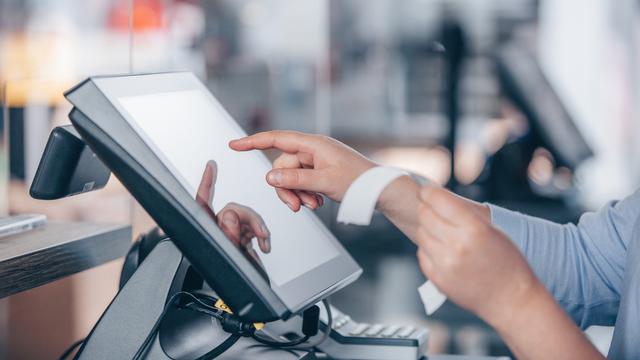Not sure what POS equipment you need for your business?
A POS is no longer what it used to be — a compendium of equipment in order to optimize the sales process of a business, which itself includes various aspects of service.
However, this does not mean that the points of sale have been losing functionality, but that they have been slowly modernized as the different technologies advance.
That also makes the POS include more features than it used to, such as social media integrations, online sales, and more.
In this article I will talk about:
- The different hardware you need for a POS.
- The different types of equipment you need for certain types of businesses.
- The most exciting innovations in modern POS systems.
- And the benefits of having the necessary equipment in your business.
A POS system is a tool that your business can’t lack, regardless of the nature of your business. Not sure what equipment you need?
Find out here!
The Simplicity of the Modern POS

A modern POS is lighter, more compact, and more aesthetic than the cash registers of past years — though these antique cash registers can make you a buck or two if sold.
This is due to the fact that they are the consequence of a change in current consumption habits, of the functions required by customers, due to technological advances with respect to hardware and software, and due to the increasing complexity of today's businesses.
A modern POS system has features that adapt it to the age of the internet, smartphones, and apps.
Therefore, you can find functions such as:
- Information storage in the cloud.
- Integrations with social networks.
- Integrations with online sales, delivery, and takeout.
- Integrations with online catalogs.
- Online functions that allow you to view your business data from any device with internet access.
- Integrations with marketing campaigns, sales funnels, email marketing, and much more.
In addition, you can also find functions that simplify the internal operations of your business, and not just the aspects visible to consumers.
For example, a POS can work to manage orders with integrations with your inventory, employee performance analysis, and more.
Equipment Required for a POS System
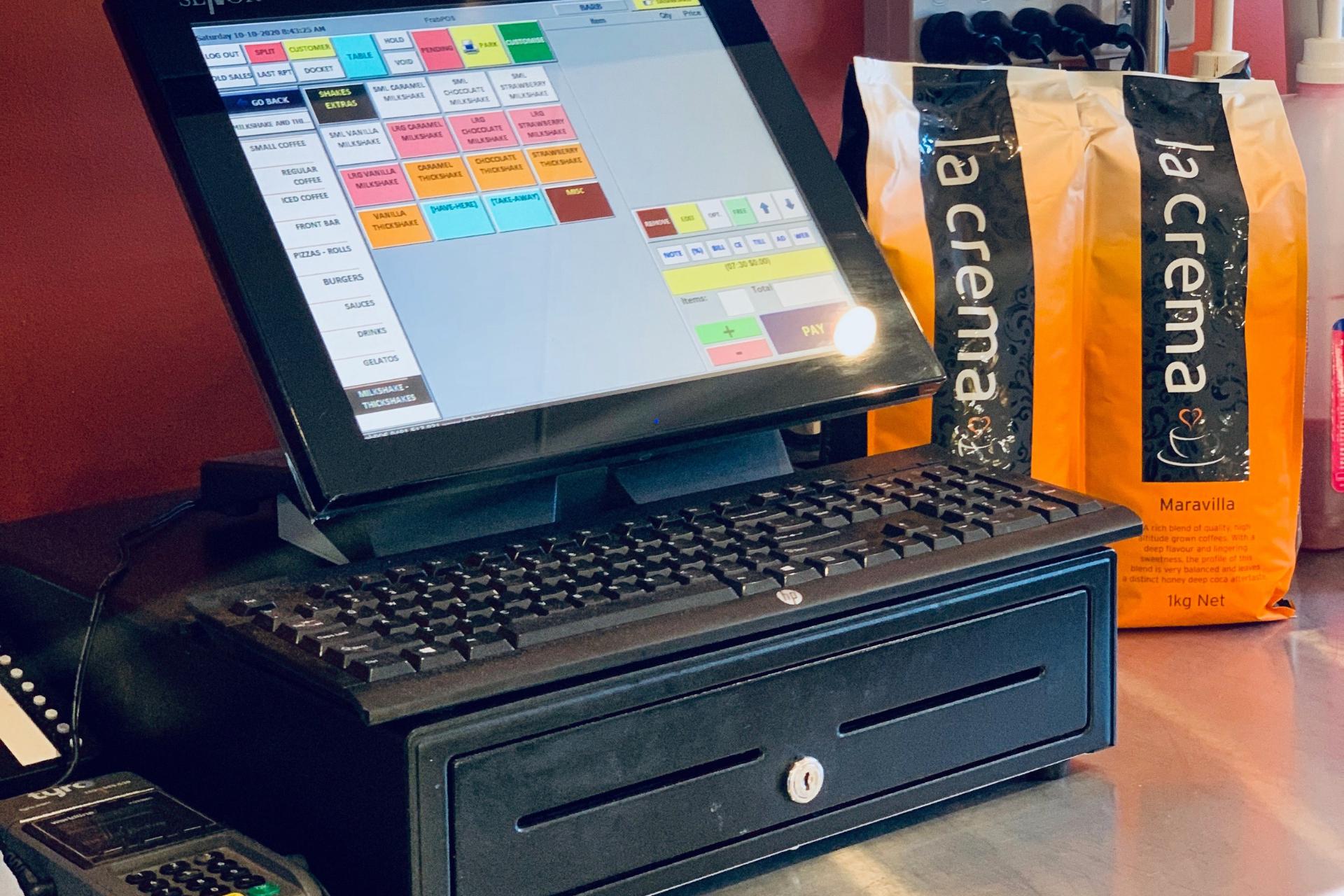
A current POS system can work from a laptop, tablet, or smartphone of any brand, with any operative system, anywhere in the world, with or without an internet connection.
But, the main advantage is that they can work without the need for different pieces of hardware, aside from the main device like a laptop or smartphone.
Sure, that doesn't mean that all types of businesses can work this way, or that you don't need anything else. In fact, most businesses commonly have the following equipment:
- Card Readers: to process credit and debit card payments.
- Cash registers: to receive cash payments.
- Thermal printers: to print invoices for each transaction.
Next, I tell you about the different equipment that you need or can use for certain types of businesses.
Point-Of-Sale Equipment for Restaurants
The point-of-sale hardware needed to run a restaurant varies. You can actually operate a restaurant with minimal equipment, like the ones mentioned above.
Still, certain pieces of equipment can improve different aspects of your business, such as service speed.
Kitchen Display System
A kitchen display system is very useful for speeding up the operation of your restaurant.
Why?
Because communication between the kitchen staff and the servers in your restaurant is vital. Having a KDS will help you have every order taken in the front of your restaurant show up in the kitchen immediately with a notification for the cooks to start working their magic. It can also work if you have a self-order POS or QR code contactless menus.
These systems can also display pending orders, so cooks make fewer mistakes, such as forgetting certain orders or extending preparation times.
This greatly speeds up the operation of your restaurant, improves the communication of your staff, eliminates the use of written orders, reduces the presence of waiters in the kitchen, and improves your staff’s synergy.
Thermal Printers
Thermal printers are essential for printing invoices for your clients, their checks, and more, which is an important part of the financial and administrative aspect of your business.
In addition, these types of printers are versatile and can be used as order printers.
Thus, each order taken at the front of the restaurant arrives as a printed order in the kitchen with specific details for the preparation of the dish.
If you don't want to install a kitchen display system, a thermal printer can take its place.
Wireless Card Readers
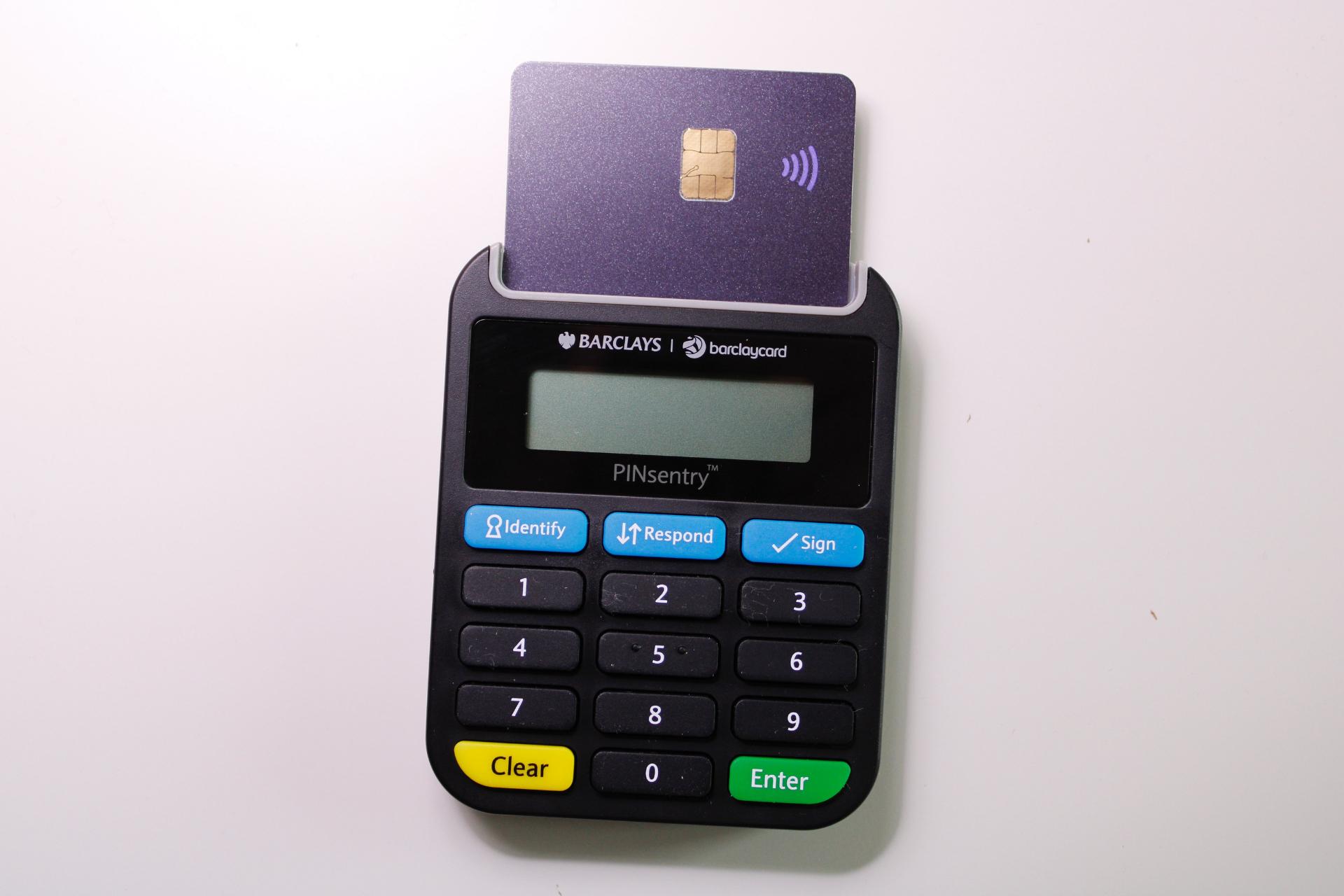
Wireless card readers work just like normal ones.
However, they are great because they maximize your guest’s comfort, who do not have to get up from their seats to go to the restaurant checkout to pay.
Smartphones or Tablets
Smartphones can be used by your servers to take orders easily, instead of taking them with a pencil and paper.
In addition, they can be integrated with your restaurant point-of-sale system so that orders are displayed in the kitchen, either on a screen or in an order issued by a thermal printer.
POS Hardware for Retail Stores
Point-of-sale equipment for a retail store is very different from what’s needed for a restaurant. A retail store and its customers have different specific needs that can only be satisfied with certain equipment.
Again, the main equipment is a laptop or desktop computer, a card reader, and a cash register.
However, the complexity of the equipment grows with the size of the business.
Barcode Readers
When a business has a large number of items in its inventory, it is a good idea to create a barcode reader and labeling system.
Thus, knowing the price of the products becomes much easier at checkout.
Small-screen barcode readers distributed throughout the store can also be installed to be used by customers.
Some businesses have chosen to create apps that allow identifying the price of certain products by reading QR codes, which is convenient for customers because most people currently have a smartphone.
Label Printers
In retail stores having label printers to handle inventory is vital.
For that, you can use standard printers or portable label printers, to register the merchandise as soon as it arrives.
Point-Of-Sale Equipment for Markets
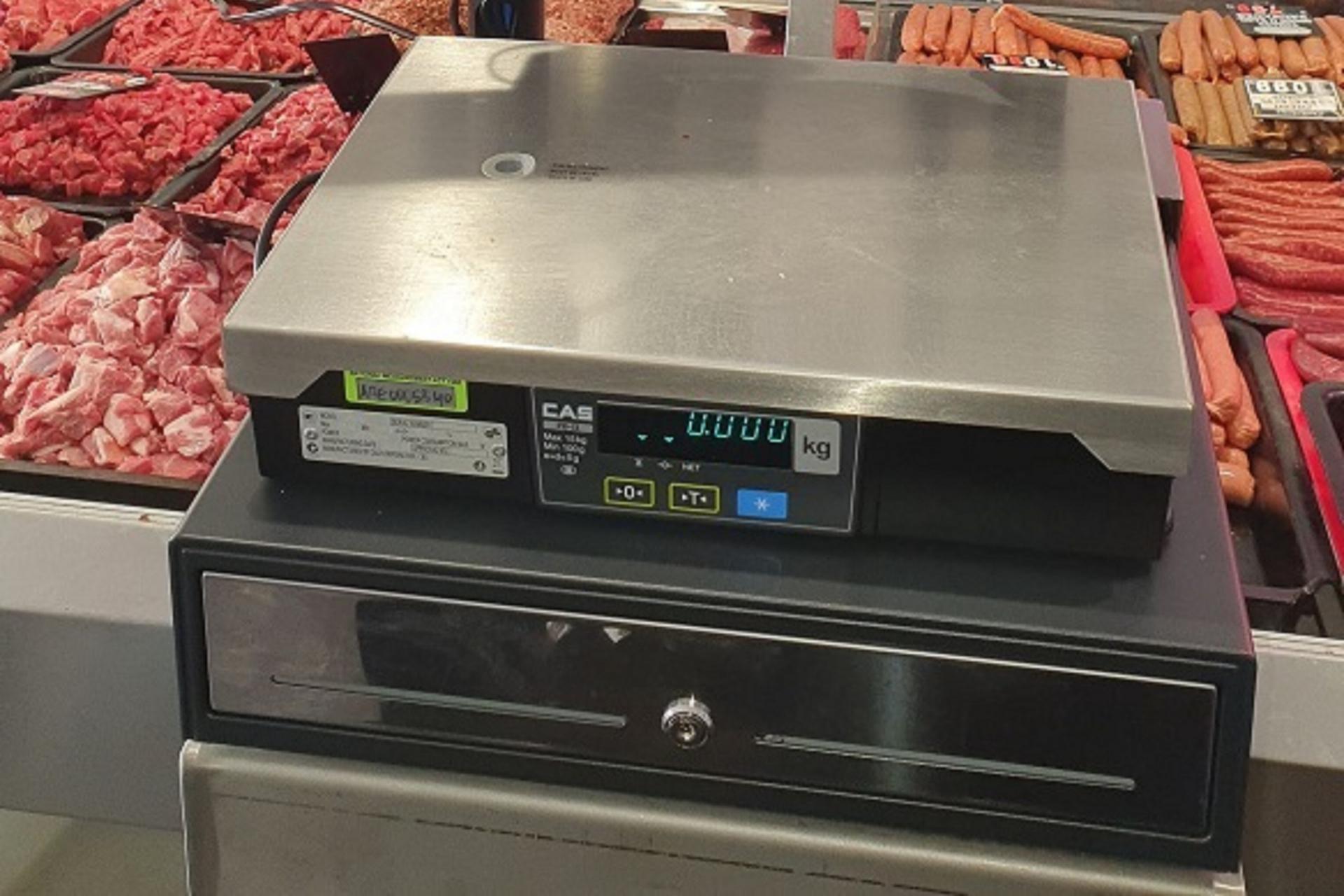
The point-of-sale equipment of a market or small grocery store has the basic equipment mentioned above, with barcode scanners, and label printers.
There is only one piece of equipment that is necessary for this type of business.
Electronic Scales
Analog scales have been replaced by digital scales that are integrated into the point-of-sale system to calculate and add the price to the final invoice.
These significantly speed up the checkout process for small grocery stores or supermarkets.
Benefits of Having Your Business Well Equipped
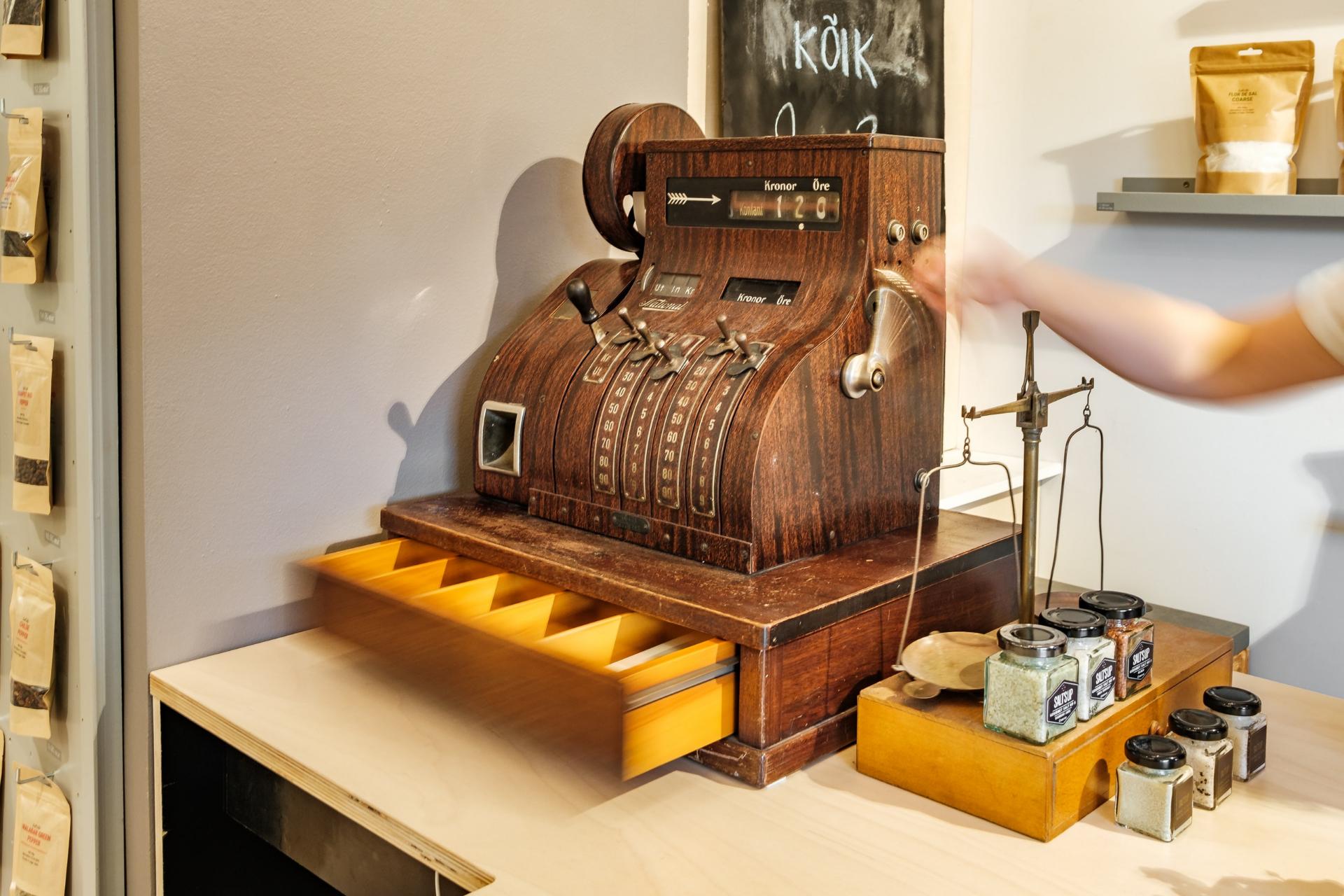
The benefits of having a business equipped with everything you need are numerous:
- The sales process is facilitated for your employees.
- The purchasing process is optimized for your customers.
- Your business transactions become much faster.
- It is easier to manage your inventory with a good labeling system.
- Fewer mistakes are made that can result in losses for your business.
- Customer satisfaction is improved.
- The right equipment makes it easy to train your staff. The best teams have improved usability to make it easier to onboard new hires.
However, as you will read below, the most important piece of hardware may not be part of your business.
Integrating the Client’s Hardware in the Sales Process

Around the world, consumers are becoming more involved in the buying and selling process of their favorite brands and companies.
Currently, the sales process does not start in the store but can start at any time with online stores and a smartphone.
Therefore, the smartphone (and other mobile devices) and all its possibilities — and those that are still under development — are the greatest innovations that you can take advantage of for your business.
Creating a point-of-sale system that is interactive and engaging with customers can help you in many ways.
For example, creating apps for your store, creating virtual catalogs, creating web pages, integrating payment methods such as NFT, Apple pay, and even using augmented reality can make your business and its technology stand out.
What Is the Most Important Aspect of Your Point-Of-Sale?
Although the hardware is vital, the most important part of a point-of-sale system is, in fact, the software.
With software, you can integrate all the different pieces of equipment mentioned in this list.
In addition, with the evolution of consumer habits, online functions gain more importance.
The right POS software can easily digitize your business, integrate the sales process with your marketing strategy, and maximize the reach of your store.
Sure, that doesn't mean the hardware is less important, so buying the right gear for your business will help you run it.
Have you equipped your business well?
